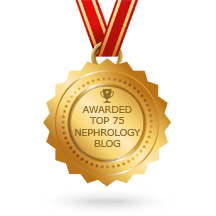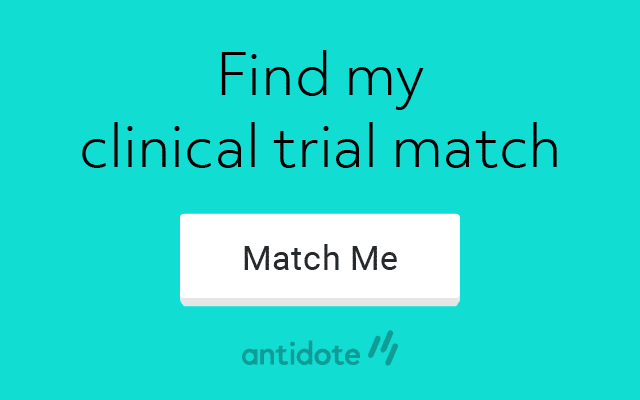Aha! Dana contacted me and here’s the blog I promised him. (Still looking for the request from the woman who waited so patiently for me to recover from my surgery. Please contact me again.) Dana asked about AKI, Acute Kidney Injury, and how aggressively his nephrologist should be pursuing treatment of this. He and his nephrologist feel that his AKI may have been caused by strep.
I know I write about CKD, Chronic Kidney Disease, so what is AKI? The glossary in my very first CKD book, What Is It and How Did I Get It? Early Stage Chronic Kidney Disease, tells us ‘acute’ means:
“Extremely painful, severe or serious, quick onset, of short duration; the opposite of chronic.” This is what I wrote about AKI and CKD in SlowItDownCKD 2017,
 “I’d always thought that AKI and CKD were separate issues and I’ll bet you did, too. But Dr. L.S. Chawla and his co-writers based the following conclusion on the labor of epidemiologists and others. (Note: Dr. Chawla et al wrote a review article in the New England Journal of Medicine in 2014.)
“I’d always thought that AKI and CKD were separate issues and I’ll bet you did, too. But Dr. L.S. Chawla and his co-writers based the following conclusion on the labor of epidemiologists and others. (Note: Dr. Chawla et al wrote a review article in the New England Journal of Medicine in 2014.)
‘Chronic Kidney Disease is a risk factor for acute kidney injury, acute kidney injury is a risk factor for the development of Chronic Kidney Disease, and both acute kidney injury and Chronic Kidney Disease are risk factors for cardiovascular disease. Not surprisingly, the risk factors for AKI {Once again, that’s acute kidney injury.} are the same as those for CKD… except for one peculiar circumstance. Having CKD itself can raise the risk of AKI 10 times.’
Whoa! If you’re Black, of an advanced age {Hey!}, or have diabetes, you already know you’re at risk for CKD, or are the one out of nine (Update: Now one out of seven.) in our country that has it. Once you’ve developed CKD, you’ve just raised the risk for AKI 10 times. I’m getting a little nervous here….
It makes sense, as researchers and doctors are beginning to see, that these are all connected. I’m not a doctor or a researcher, but I can understand that if you’ve had some kind of insult to your kidney, it would be more apt to develop CKD.
And the CVD risk? Let’s think of it this way. You’ve had AKI. That period of weakness in the kidneys opens them up to CKD. We already know there’s a connection between CKD and CVD (Cardiovascular Disease). Throw that AKI into the mix, and you have more of a chance to develop CVD whether or not you’ve had a problem in this area before. Let’s not go off the deep end here. If you’ve had AKI, you just need to be monitored to see if CKD develops and avoid nephrotoxic {Kidney poisoning} medications such as NSAIDS… contrast dyes, and radioactive substances. This is just so circular!
As with CKD, your hypertension and diabetes {if you have them.} need to be monitored, too. Then there’s the renal diet, especially low sodium foods. The kicker here is that no one knows if this is helpful in avoiding CKD after an AKI… it’s a ‘just in case’ kind of thing to help ward off any CKD and possible CVD from the CKD.”
Dana’s nephrologist put him on a regiment of prednisone for two months. Why? Well, prednisone is an anti-inflammatory drug. WebMD at https://www.webmd.com/a-to-z-guides/what-is-acute-kidney-failure#1 offers the following as possible causes of AKI. Notice the very last one and you’ll see how prednisone may be helpful.
- “Something is stopping blood flow to your kidneys. It could be because of:
- An infection
- Liver failure
- Medications (aspirin, ibuprofen, naproxen, or COX-2 inhibitors, like Celebrex)
- Blood pressure medications
- Heart failure
- Severe burns or dehydration
- Blood or fluid loss
- You have a condition that’s blocking urine from leaving your kidneys. This could mean:
- Bladder, cervical, colon or prostate cancer
- Blood clots in your urinary tract
- An enlarged prostate
- Kidney stones
- Nerve damage in your bladder
- Something has directly damaged your kidneys, like:
- Blood clots
- Cholesterol deposits
- Medications that can directly damage kidneys, including NSAIDs like ibuprofen and naproxen, chemotherapy, and antibiotics
- Glomerulonephritis (inflamed kidney filters; can be caused by an infection, autoimmune disease (like lupus), multiple myeloma, scleroderma, chemotherapy drugs, antibiotics, or other toxins)”
Now we know AKI and Acute Kidney Failure are not the same thing, but it is possible that this nephrologist is using prednisone in an attempt to avoid Acute Kidney Failure.
 One thing Dana asked that made me stop cold is “How do you cope with the inevitable aspects?” They are not inevitable, Dana. I am a lay person who has managed to keep my CKD at stage 3 for 11 years. I am also not a magician. What I am is someone who follows the guidelines for keeping my kidneys as healthy as possible.
One thing Dana asked that made me stop cold is “How do you cope with the inevitable aspects?” They are not inevitable, Dana. I am a lay person who has managed to keep my CKD at stage 3 for 11 years. I am also not a magician. What I am is someone who follows the guidelines for keeping my kidneys as healthy as possible.
You’ve already seen a nutritionist – hopefully a renal nutritionist, since a healthy diet is not necessarily a renal healthy diet – so you’re aware of the nutrition aspect of protecting your kidneys. But there’s more. Do you smoke or drink? If so, stop. Do you exercise? If not, start… but with your nephrologist’s supervision. Are you getting adequate sleep and rest? Here’s the hardest guideline: try to avoid stress. Of course, if you have a stressful life, avoiding stress can just be another stress.
As to how aggressively you should expect your nephrologist to treat your AKI (or the CKD resulting from it) really depends upon you and your nephrologist. For example, some think stage 3 is barely CKD and urge you to just keep watch. Others, like my nephrologist, take CKD seriously and have their nutritionists train you re the renal diet and speak with you themselves about the guidelines. As for AKI, again it depends on you, your nephrologist, and the severity of the AKI. Since you have waste product buildup and inflammation, you may need dialysis or a hospital stay… or watchful waiting while taking a medication such as prednisone.’

There seems to be quite a lot of leeway as to the treatment you and your nephrologist decide upon.
Until next week,
Keep living your life!



Great post Gail! AKI was never spelled out to Raymond, but that was exactly what he had from his car accident in the military in the early 90’s that started it all. Knowing what we know now, it was astonishing to come across his medical records from the Army and understand what was really going on.
>
I’m so sorry to hear that, Analyn. But I am so glad we know so much more about AKI these days.